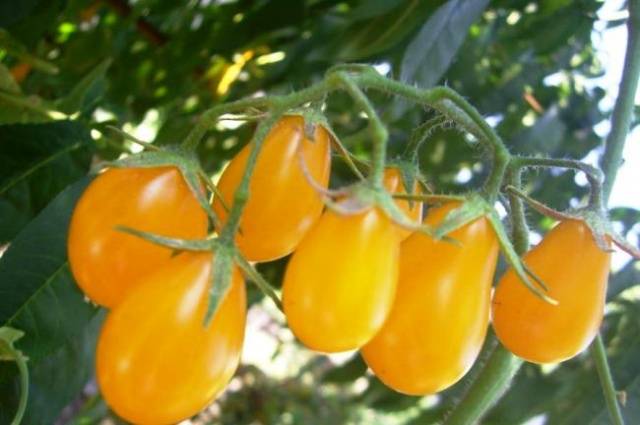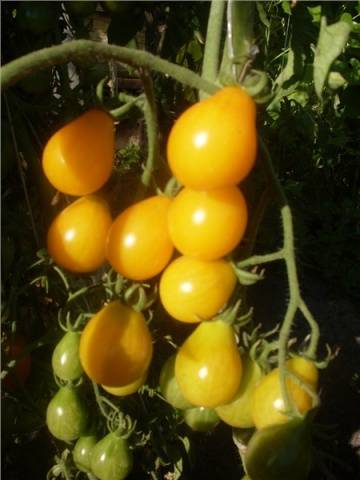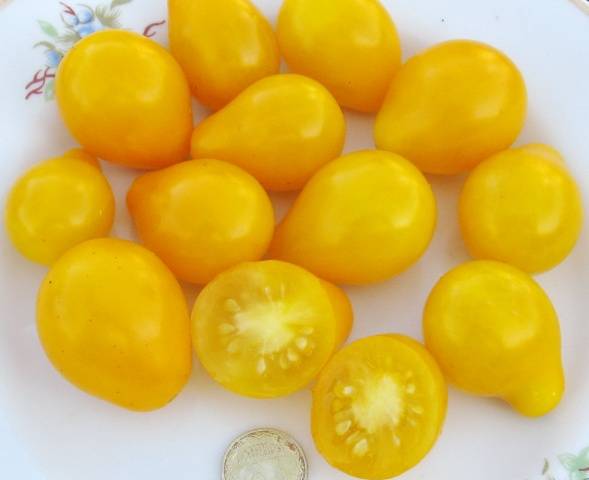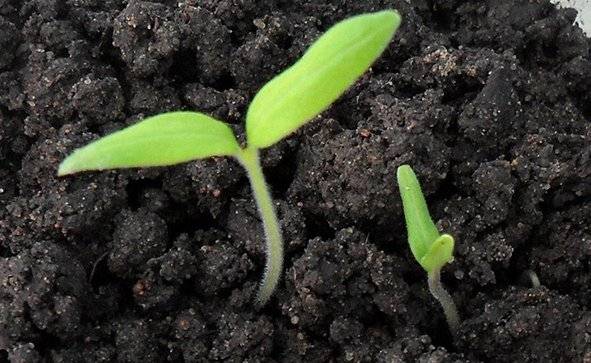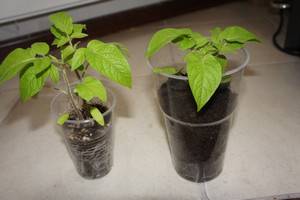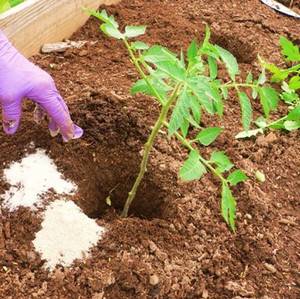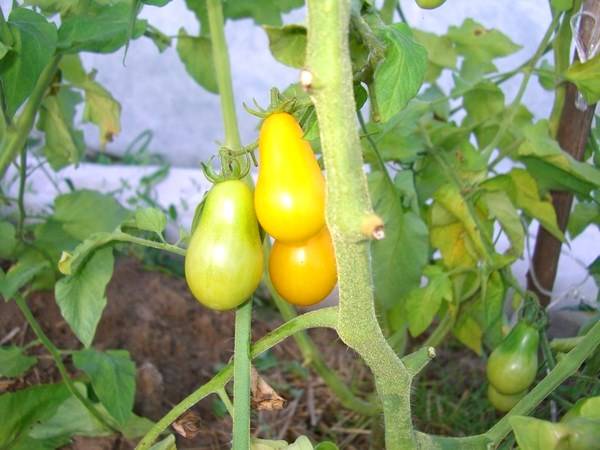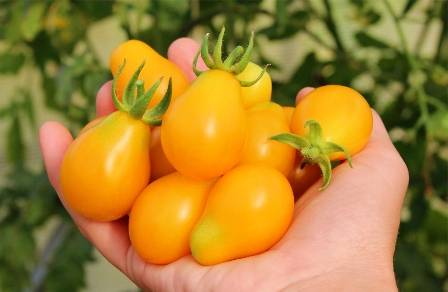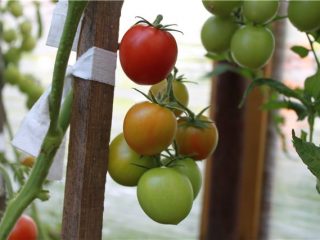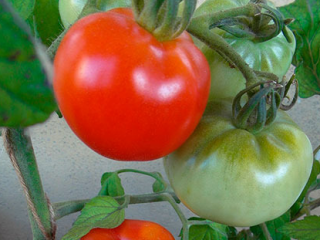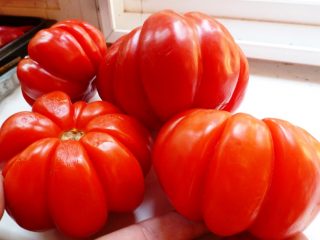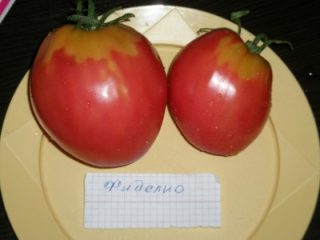Content
Gardeners who know a lot about tomatoes grow on their site not only red, but also yellow varieties. The fruits of these types of tomatoes contain little liquid, so they are almost 95% pulp. In addition, yellow tomatoes are especially rich in vitamin A, which mainly determines their color. Let's take a closer look at the representatives of this unusual tomato using the example of the Honey Drop variety.
Description
Tomato "Honey Drop" belongs to the representatives of the indeterminate variety. A distinctive feature of this species is the small size of the fruit. It is thanks to this property that the variety is classified as one of the popular cherry tomatoes today.
Tomato "Honey Drop" is intended for growing both in the greenhouse and in the open field. The manufacturer's description on the package with seeds indicates that when a plant is planted in a greenhouse, its length varies from 1.5 to 2 m.On the garden, the size of the bushes is slightly lower - from 1.2 to 1.5 m.
The fruits, as you can see in the photo, are small in the variety. The weight of one vegetable is only 12-15 grams. The fruits are bright yellow and pear-shaped, resembling a drop. It is thanks to its shape, color, and taste that the tomato got its name.
The yield of the variety is high. Tomatoes hang from the plant in large clusters, with which, judging by the reviews, a particularly tall bush is densely strewn from top to bottom.
In cooking, the fruits are actively used in food raw, as well as in the form of vegetable salads. The small size of the fruit makes the Honey Drop variety especially convenient for whole-fruit canning and pickling.
Features of growing and care
Growing a tomato "Honey Drop", like any other type of tomato, consists in the sequential execution of the following steps:
- Sowing seeds and growing seedlings.
- Planting plants in the ground.
- Regular and proper care of the tomato, as well as timely harvest.
Let us consider all the above positions in more detail regarding the "Honey Drop" variety.
Sowing seeds and growing seedlings
Seeds of the "Honey Drop" variety have good germination. The optimal time for sowing is the end of March.
Seeds are sown in prepared and moistened soil in advance. The seed is placed at a depth of 1-2 cm. Then the container with the newly planted seeds is covered with a layer of film and placed in a warm place.
The first shoots of the Honey Drop variety appear after 1-1.5 weeks. After the appearance of real leaves, the plants can be dived. A pick is necessary for the further correct growth of the bush and effective fruiting.
This is necessary for the development and growth of lateral roots, which leads to the development of the root system and, as a consequence, the entire plant as a whole.
Planting plants in the ground
The "Honey Drop" variety, according to its main characteristics, can be planted both in a greenhouse and directly on a garden bed. The place for planting is selected based on the individual preferences of the grower, as well as the climatic characteristics of the region.
To do this, the bushes with tomatoes are first taken outside for several hours, and then, after a couple of days, they are left in the fresh air for the whole night.
Seedlings are planted after spring frosts, usually at the end of May. Plants are planted according to the 40x70 scheme in preheated soil (when planting in a greenhouse) and relatively low air humidity.
Regular proper care of the tomato
Care for the "Honey Drop" tomato variety includes:
- timely watering;
- regular loosening of the soil and removal weeds;
- plant feeding;
- constant garter bush as it grows;
- regular removal of side shoots and foliage to shorten the ripening period and improve the palatability of the tomato;
- timely harvest.
Advantages and disadvantages of the variety
Among the main advantages of the "Honey Drop" tomato, it should be noted:
- good germination of planting material;
- resistance to the occurrence of diseases;
- high productivity;
- excellent taste;
- high content of sugar and carotene in fruits.
Of the shortcomings, only:
- the tallness of the bush, which causes a number of inconveniences and requires the obligatory garter of the plant;
- the regularity of watering, loosening and feeding the plant.
All of the above disadvantages are more than offset by the richness of the tomato crop, which makes the Honey Drop variety one of the most popular among gardeners.
Pests and diseases
The variety is resistant to a number of diseases common to most tomatoes. Despite this, one should not neglect preventive measures and be prepared for any development of events.
The climatic features of the region can both help and harm the plant, therefore, we will consider a number of the main diseases that the "Honey Drop" can undergo.
Late blight
This disease, typical for most tomatoes, can affect plants that are grown in a greenhouse. The development of this disease is associated with high humidity and constrained conditions for the growth and development of plants. In open ground, plants get sick less often.
To prevent the appearance of the disease, pre-treatment of plants should be carried out and regular visual observation of the condition of each bush should be carried out.
In order to prevent the invasion of pests, mulching of the soil should be carried out, the systematic procedure for ventilation and spraying should be ensured.
You will get even more information about growing tomatoes in a greenhouse after watching this video:
"Honey Drop" is a unique variety of tomatoes with a high yield, good disease resistance and excellent taste. This variety will appeal to anyone, even the most fastidious gardener.
